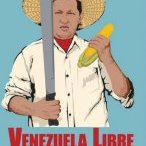English · Español

27 May 2016 | Interviews | Food Sovereignty
Advances and potential setbacks in the road towards Food Sovereignty in Venezuela
Download: MP3 (2.5 Mb)
The Agroecological Conuquera Market takes place each first Saturday of every month, at Parque de los Caobos, Caracas. This is a space where in addition to buying agroecological food, people can participate in workshops about healthy food and production. Real World Radio visited the Market and interviewed Ana Felicié and Esquiza Omaña, two members of the GMO-Free Venezuela Campaign, also part of this market.
At the end of 2015, the Venezuelan government passed a Seeds Law, a result of the work of national organizations. The new law banned the cultivation, multiplication and commercialization of GMOs, as well as patents and breeder certificates, biopiracy and bioprospection. Ana and Esquiza told us about the situation in this country with reference to the building of Food Sovereignty.
"The passing of the law was a three-year-long process. It started with a movement that prevented the passing of a bill that compromised seeds, a pro-GMO project. We started by stopping this bill and continued with the building of a new Bill that emerged not from the Assembly, as Chavez said, but from a legislative people".
According to Esquiza, "peasants, indigenous communities, educators, raw materials and manufactured goods producers, consumers" were in charge of this process. "We had to fight and defend this process to have the bill passed. And now that it has been passed, there are other risks, because our Assembly is openly right-wing, with clear pro-Monsanto, pro-transnational corporations interests", said the activists.
As a first main element of this bill, Ana highlighted the "recognition of peasant seeds as more than a plant resource. As a subject of rights (...). Around this, a lot of mechanisms are established that recognize the knowledge, practice of management systems and all the territories of those local, peasant, indigenous and Afro-descendant seeds to reclaim the cultural identity behind each of these threatened seeds".
The law establishes different popular power spaces to enforce the regulation. It thus creates "a popular organization in charge of keeping, multiplying and guarding seeds through different spaces such as communal councils, social movements. This takes place at different levels: at local level, recognizing the role of teachers, high-quality participatory community councils, and at national level, such as the Popular Council for the Saving of Peasant, Indigenous and Afro-Descendant Seeds".
This Seeds Law is one of many laws passed in the past that constitute the legal tools that contribute towards the building of Food Sovereignty in Venezuela: the Lands Law, the Food Sovereignty Law, and the Fisheries Law. All of them are threatened now given the new forces at the Venezuelan Parliament: "The right wing has publicly announced (now that they´ve taken over the National Assembly) that these laws will be partially repealed by the National Production Law. So all the legal efforts to ensure the right to food, to production and to land are being targeted by the interests of the business class, by FEDEAGRO (the Confederation of Agricultural Producers Associations), by transnational corporations and national operators".
Imagen: http://www.olabolivariana.org.ve/







